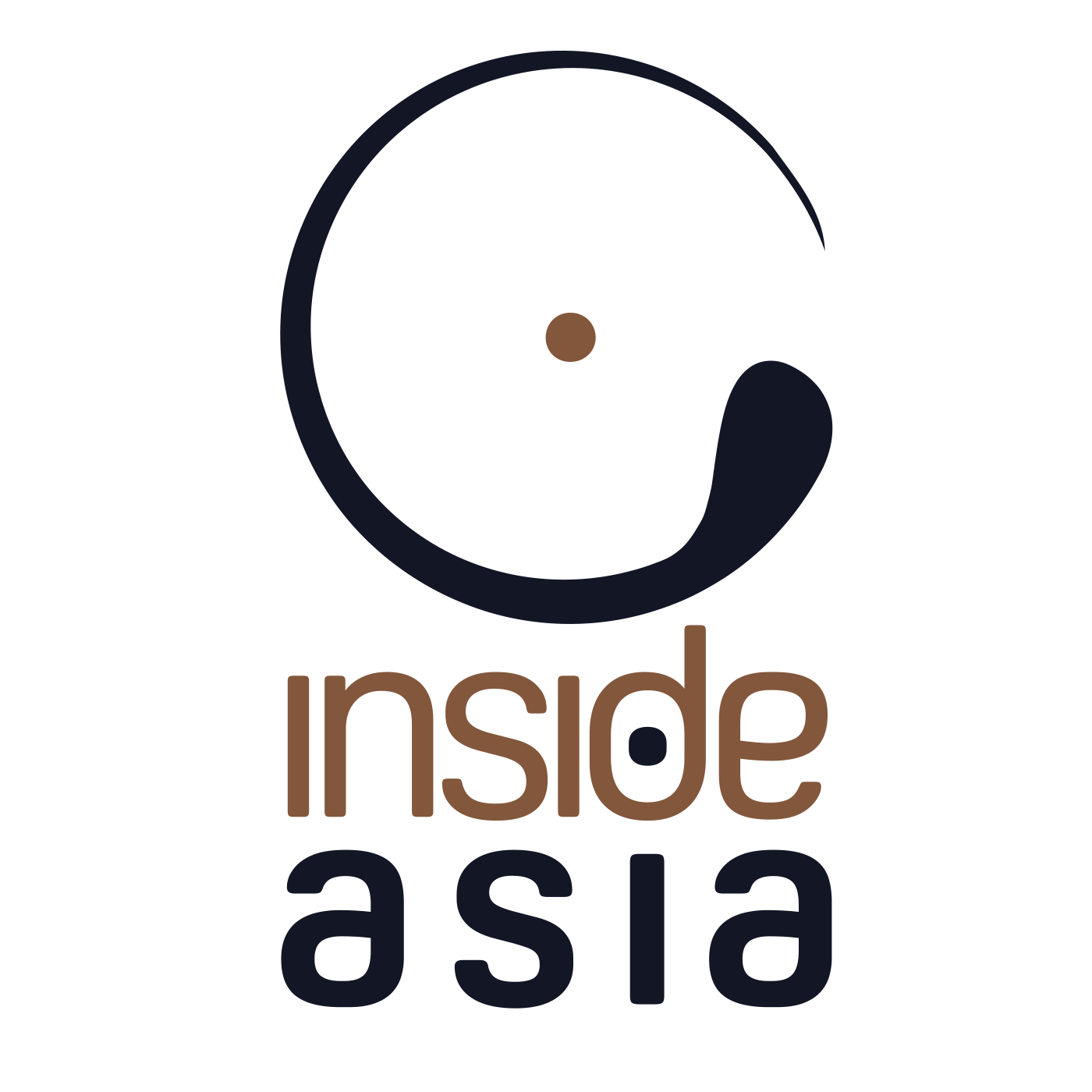Episodes
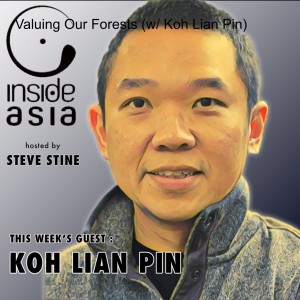
Sunday May 02, 2021
Valuing Our Forests (w/ Koh Lian Pin)
Sunday May 02, 2021
Sunday May 02, 2021
My guest this week is Koh Lian Pin, a Singapore-based conservation scientist, and also one of nine nominated members of the Singapore Parliament. He’s staked his career on identifying ways to preserve our planet’s natural resources. His dream, as he says, is to see agri-business and forests in a state of peaceful co-existence.
This week, we take a look at the movement to preserve and protect our forests. There’s a new sense of urgency in the race to combat climate change. Trees, it so happens, are one of the greatest single sources of carbon-capture. And because of that, they are receiving a well-spring of conservationist and investor attention.
Programs like OneTreePlanted, Global Forest Generation, and One Trillion Trees are all encouraging individuals and corporations to plant and preserve forests. It couldn’t have come at a better time. While the pandemic might have slowed the rate of carbon output from manufacturing and travel, rain forests were not spared. In fact, the rate of deforestation accelerated in 2020, led primarily by logging and clearing activities in Brazil – home to more than 50% of the world’s rain forest.
Evidence suggests that love of trees alone won’t stem the deforestation tide. What we need are market mechanisms that value trees and the carbon they capture and process. Singapore is lining up on the opportunity and I spoke with Lian Pin to better understand what’s at stake.
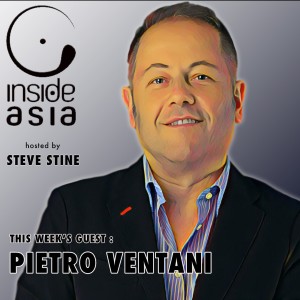
Sunday Apr 25, 2021
Capitalism’s Right of Passage: Part 2 (w/ Pietro Ventani)
Sunday Apr 25, 2021
Sunday Apr 25, 2021
A couple of weeks ago I was sitting in the member’s lounge of a local club I like to visit, and my Italian economist friend, Pietro Ventani comes up to me, sits down, and pushes a piece of paper across the table. “I’ve been thinking about this,” he says. “There’s more to it.”
What he’s referring to is an earlier conversation that resulted in the release of our first “Capitalism’s Right of Passage” episode released on April 2nd. I unfolded the paper and there, printed in black and white, were four statements with accompanying bullets. There was “The Problem,” “Root Causes,” “What governments are doing to fix the problem,” and “What governments should do to fix the problem.”
We had a coffee, talked it over, then retreated to a corner of the club to have the conversation you’re about to hear. We get straight to the point. And if I’m not mistaken, we address, in its entirety, the problem with the current state of Capitalism. I’m joking of course, but I have to say, it was a pretty tight and focused conversation. You be the judge. To latch onto what we’re saying, it’s not essential, but you might want to first listen to part one. Either way, I hope you enjoy this as much as I did.
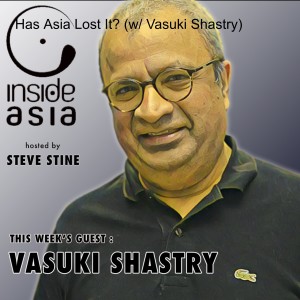
Sunday Apr 18, 2021
Has Asia Lost It? (w/ Vasuki Shastry)
Sunday Apr 18, 2021
Sunday Apr 18, 2021
This week on Inside Asia, we reach across the Pacific to speak to Vasuki Shastry. He’s a Washington D.C.-based Senior Fellow at the US Chamber of Commerce and an Associate Asia Pacific Fellow at the policy institute Chatham House in London. We reached out to talk about his new book, provocatively entitled: Has Asia Lost It? A surprising headliner at a time when many would say the Pacific Era is upon us and Asia is most certainly on the rise.
Vasuki disagrees. On the face of it, he says, things looks good. For instance, in just four short decades, the region has climbed its way out of poverty. Political and economic risk remains low. Vast wealth has accrued. And China has assumed Superpower status. Not too shabby. What we’re facing now, he says, is Peak Asia. Scratch beneath the surface and you see two systems. One that caters to the elites and one that controls the average citizen. Opportunities and upward mobility are diminishing. And unless Asia breaks the bonds of economic integration with the west through trade and manufacturing, it may never realize its potential. With talk of further de-coupling, the pressure is on Asian leaders to change – and fast.
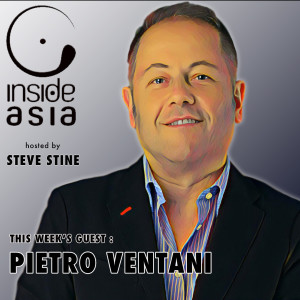
Friday Apr 02, 2021
Capitalism’s Right of Passage (w/ Pietro Ventani)
Friday Apr 02, 2021
Friday Apr 02, 2021
This week on Inside Asia, we’re tackling a big topic – Capitalism. You might argue that it’s a system as tightly imbedded in our daily lives as any other. There’s hardly a place on Earth that isn’t affected by it. In most places, it governs the basic exchange of goods and service, provides the means for that exchange, and offers a set of economic rules by which most of us can agree.
It can be credited in large part for lifting half of the human population out of poverty in only half a century’s time. Healthcare and lifestyle innovations did wonders in keeping disease in check. That led to a global population explosion. But corporations responded, building things better, faster, and cheaper so that everyone could take part in the great Capitalist dream.
It was all going so swimmingly, until it wasn’t. Starting in 2005, there were warning signs. By 2007, in the U.S., delinquency rates on subprime lending rose sharply. And at the outset of 2008, the markets were in free-fall. What ensued was a Global Financial Crises, the likes of which the world hadn’t seen since the Great Depression.
If this re-telling strikes you as tiresome, forgive me, but here’s the point: It could have been prevented. It’s a failing of government regulators who proved unable or unwilling to check the collective power of monied interests. In the blink of an eye, Capitalism as a means of serving the greater good became the whipping boy of the financial elite.
The real question is: Can we get it back? Here to discuss it with me is Pietro Ventani, a Singapore-based economist and investment strategist, who does some dabbling in early-stage fintech and blockchain ventures. We talked about Capitalism’s victories and failings, its ability to address new world issues, and how politics and technology are spoiling some of those prospects. All this in less than 35 minutes. So stay tuned.
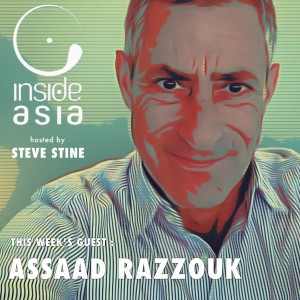
Wednesday Mar 24, 2021
The Still Angry Clean Energy Guy (w/ Assaad Razzouk)
Wednesday Mar 24, 2021
Wednesday Mar 24, 2021
My guest this week is Assaad Razzouk, Group CEO at Sindicatum Renewable Energy and host of The Angry Clean Energy Guy podcast. We’re talking about the need for new market forces to drive sustainability and reduce carbon output. In Assaad’s view, we’ve been playing around the perimeter for too long. Now is the time to align corporate, government and societal interests to ensure a cleaner world and healthier planet.
On the environmental and cleantech front, we’re off to a fast-start in 2021, and according to my guest this episode, there’s no time to waste. Structural changes, however, are essential. And this means calling out the biggest contributors to our current climate change crises. It starts with Big Oil. They have a lot to account for, says Assaad, not just in the way they operate, but in the tactics they have long employed to divert public attention and lay the blame elsewhere.
In this 35-minute conversation, we touch on the geopolitics of climate change, fossil fuel charades, investor responsibility, and the need to once and for all impose a set of progressive policies that hold corporations accountable for extracting from the earth and polluting the environment.

Thursday Mar 11, 2021
A Purpose-driven Career & Life After Work (w/ Todd Miller)
Thursday Mar 11, 2021
Thursday Mar 11, 2021
“Purpose” as a business operating principle, has been elevated as a key priority for hundreds, if not thousands of organizations worldwide. The idea that all stakeholders are important, and not just shareholders is a new, novel, and some say, notorious concept. Convincing people within an organization to change the way they think, plan, and work is no easy task. Even so, that’s what purpose-driven organizations are trying to do – lifting their game in order to better serve people and planet.
But what happens if executives tasked with developing and delivering Corporate Purpose are experiencing their own existential crises? Many have built careers by toeing the party line, delivering results, and mastering corporate politics. Achieveing career goals carries some satisfaction, no doubt. But you have to ask: To what end? For those of you who’ve been in the game for a while, chances are you’ve made your company richer, more efficient, or even better liked. That’s great. But how do you feel…you know…personally?
“Tired,” said one senior executive who I recently spoke with. “It was hard enough to keep everyone happy before Covid. Now it’s even harder,” he told me.
My guest this episode, Todd Miller is someone who’s reflected on the challenges of modern corporate life. He knows first-hand that failure to address the yearnings of the soul – if not taken seriously – can alter your outlook on life, curtail job satisfaction, and leave you searching for answers in far away places. Here’s my conversation with Todd.
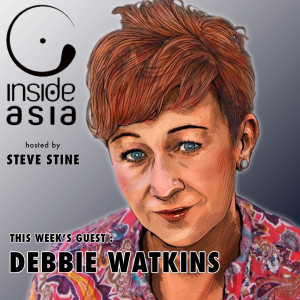
Thursday Mar 04, 2021
Backing Women Entrepreneurs in a Time of Change (w/ Debbie Watkins)
Thursday Mar 04, 2021
Thursday Mar 04, 2021
This week (and every week) we celebrate women, and women entrepreneurs in particular. Increasingly, female founders are launching new and innovative ventures with growing support from investor communities that for too long have been male-biased. Don’t believe me? Look at the numbers. From wage inequality, to promotions, to venture funding and social stigmas, women have had an uphill battle.
The situation is particularly depressing in the poorest countries and among the least educated. Patriarchal societies are alive and well and for a woman to succeed financially or professional it takes an added level of luck, grit, and tenacity. Money helps too. And in markets the world over, women have a harder time securing credit or receiving funding than their male counterparts.
One Singapore-based start-up hopes to make a difference. LUCY, a self-described “neo-bank” plans to provide the tools, network, and eventually the credit, to help entrepreneurial women succeed. I spoke with co-Founder and CEO Debbie Watkins. She spent years working with women in poverty-striken markets before pulling together a group of inspirational women and backers to offer their sisters in the field a helping hand.
I’m also pleased to announce that beginning this week Inside Asia has a new sponsor. Quilt AI is a mission-first technology company that helps large organizations use the Internet more purposefully. It’s looking to reverse fractures in society and generate empathy, while helping organizations understand their consumers and beneficiaries much better. Quilt works with amazing organizations including Amazon, Twitter, The Gates Foundation, and The World Bank. But what got my attention is their pro bono work in gender equity and climate action - giving time and money to causes they care about and in service to the planet. Inside Asia is pleased to be associated with Quilt AI. For more information, do check them out at Quilt(dot)AI.
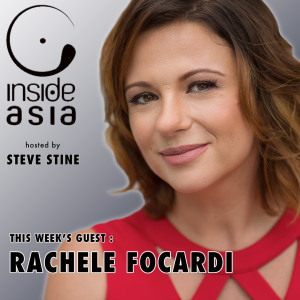
Thursday Feb 25, 2021
Corporate Communication and the Generational Divide (w/ Rachele Focardi)
Thursday Feb 25, 2021
Thursday Feb 25, 2021
My guest this week is Rachele Focardi, author and expert on multigenerational divides. It’s a topic that continues to plague corporations that now, more than ever, need to attract and retain great talent.
Rachele, Founder of XYZ@Work and author of Reframing Generational Stereotypes, sat down with me to discuss many of the challenges faced by modern corporations when it comes to identifying, understanding, and incorporating the growing needs of an increasingly diverse workforce. A lot of attention has been paid to gender and racial diversity in the workplace, but generational differences are sometimes under appreciated. My guest argues that this could prove a grave mistake, particularly at a time in history where young talent armed with technology, a gig mentality, and social agendas, have choices. Increasingly, she argues, “the value of an organization doesn’t lie in it’s assets, but in it’s people.”
There’s not an organization that doesn’t pay lip service to the idea, but how many are actually backing it up, investing in their employees not just because it’s good business, but because it’s the right thing to do?

Thursday Feb 18, 2021
Food to Feed the Planet (w/ Josh Tetrick)
Thursday Feb 18, 2021
Thursday Feb 18, 2021
My guest this week is Josh Tetrick, Co-Founder and CEO of San Francisco-based Eat Just, Inc. And no, it’s not an episode about life beyond this planet but life on the only planet that really matters – our planet. It’s also a "chicken or the egg" story. But in this instance, the chicken and the egg both come first. What comes next is a plant-based version of the egg.
Confused yet? Well hang in there, because we’re talking about one of the most centrally important subjects of our time: Food. How we produce, process, and consume it has been something that all of us have taken for granted for decades now. But when you consider – as Josh does – that fully one-third of our arable land is used to produce feed for chickens and livestock, then something is terribly wrong.
East Just, Inc. and a network of like-minded start-ups are trying to make a difference and hoping to profit at the same time. Poultry is a 230 billion dollar a year business. The market for eggs is slightly smaller at 200 billion. But given that both are among the world's most popular foods, it doesn't take a rocket scientist to see that by converting just a small percentage of chicken and egg lovers to a plant-based alternative, there’s upside for everyone: the consumer, the innovator, the planet, and not to be overlooked, our fine-feathered friend, the chicken.
Josh is no stranger to the plant-based protein business. He's been probing away at the problem for more than a decade. But now, his company’s plant-based egg and lab-cultivated chicken are taking wing. Country regulators are just beginning to approve plant-based meat alternatives and manufacturing is ramping up. I spoke to Josh about his journey, his company, and what’s at stake if we don’t innovate our way out of a pending agricultural crises.
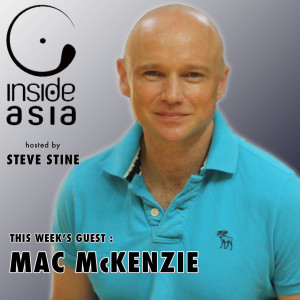
Saturday Feb 06, 2021
Corporate Morality and the Pursuit of Social Justice (w/ Mac McKenzie)
Saturday Feb 06, 2021
Saturday Feb 06, 2021
Do corporations have a moral obligation to society? That’s the subject of this week’s episode of Inside Asia. My guest, Mac McKenzie, is Co-founder of the Bridge Partnership Asia and the Bridge Institute.
It’s safe to say that over the course of history, companies have been viewed through the lens of profit. Causes that speak to social justice, racial and gender equality, and even environmental protection were left over the years to non-profit, religious, and government institutions. Unfortunately for them, public perception with respect to their effectiveness has all but collapsed. Only corporations, apparently, have withstood public scrutiny and are seen today as the last bastion of trust and competency. In some ways, that’s a scary thought.
But regardless, it puts new impetus on companies to step it up. Even for the hold-out CEO who say “it’s not my department,” there’s no stopping consumers from wanting it to be so. It’s a dilemma for the for-profit sector, but an opportunity as well.
At the heart of it is trust. And if you watched – as I did – as rabid Trump supporters stormed the US Capital after the President of the United States lied about the election outcome, then its not hard to wonder how public trust in government is in rapid decline. The same is true in China, where attempts to cover up the Covid-19 outbreak created a public outcry. And in Russia last week, protests erupted in over a hundred cities with tens of thousands demanding an end to political corruption. Trust in government from Moscow to Bejing and Washington, DC, has plummeted.
Some say it’s the early makings of a societal vacuum. There are few institutions left in the world that have the resources and ability to move the dial in the realm of social justice. Bridge Consulting is trying to test the limits on what companies feel they can and can’t do. It’s raising some interesting questions. And consumers in Asia, it appears, are hoping to see more from companies in the months and years ahead.

